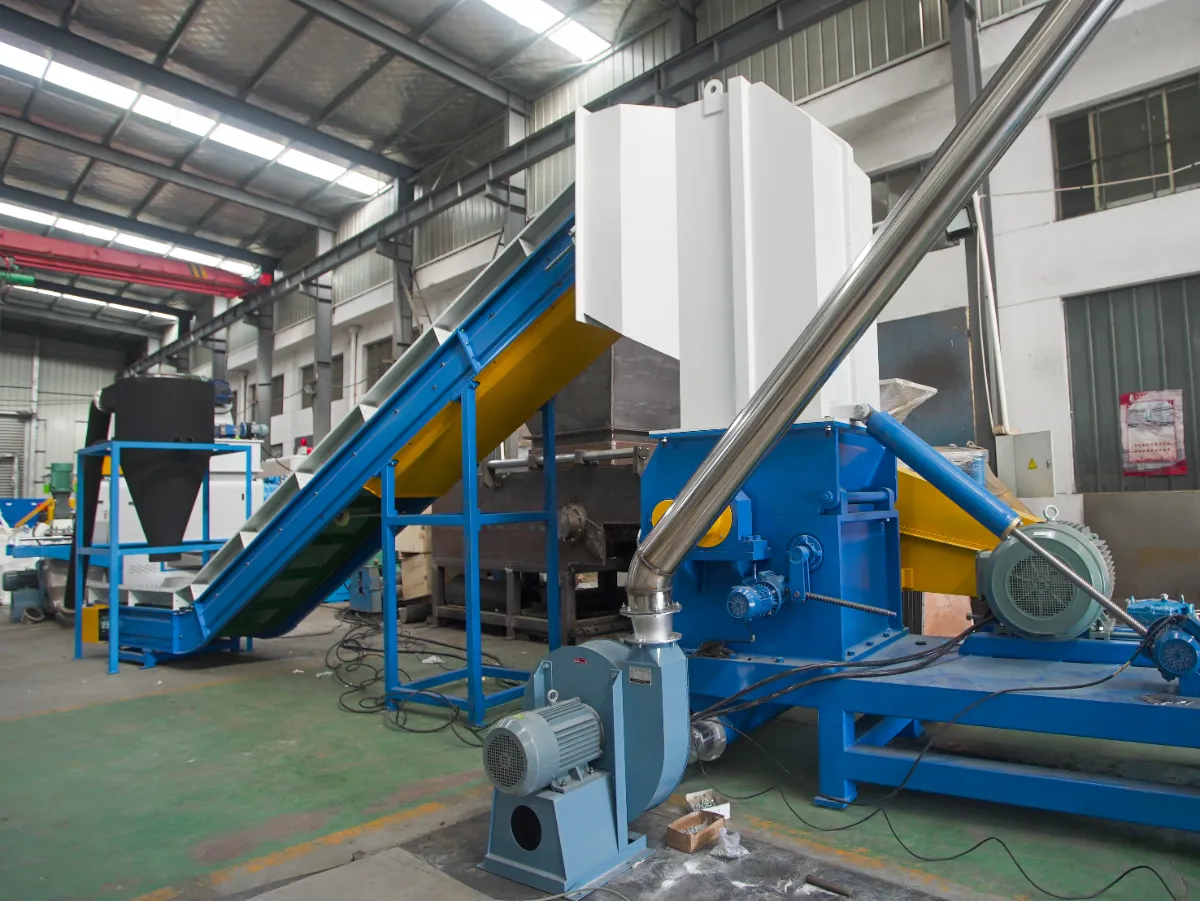In an era where sustainability has become a global priority, the demand for efficient and affordable recycling solutions is at an all-time high. Among these solutions, plastic recycling machines stand out as crucial tools in the battle against plastic waste. If you’re considering investing in this technology, understanding the plastic recycling machine price is essential. This guide aims to provide you with comprehensive insights into the costs involved and factors affecting these prices, helping you make an informed decision.
Contents
- 1 Understanding Plastic Recycling Machine Prices
- 2 Cost-Benefit Analysis of Investing in a Plastic Recycling Machine
- 3 How to Choose the Right Plastic Recycling Machine
- 4 Conclusion
- 5 Frequently Asked Questions (FAQs)
- 5.1 What is the average price of a plastic recycling machine?
- 5.2 How can the cost of a plastic recycling machine be justified?
- 5.3 What factors affect the price of plastic recycling machines?
- 5.4 Are there any government incentives for investing in plastic recycling machines?
- 5.5 How can I choose the right plastic recycling machine for my needs?
- 5.6 INQUIRIES
Understanding Plastic Recycling Machine Prices
The price of plastic recycling machines varies widely based on several factors, including type, capacity, technology used, and additional features. Generally, prices can range from a few thousand dollars for a basic setup to hundreds of thousands for a complete recycling line.
Factors Influencing the Price
- Type of Machine: The plastic recycling industry utilizes various machines, such as shredders, grinders, extruders, and pelletizers. Each serves a different purpose in the recycling process and comes with its own price tag.
- Capacity: The machine’s capacity, often measured in kilograms or tons per hour, significantly impacts the price. Higher capacity machines are typically more expensive due to their larger size and increased efficiency.
- Technology: Advances in technology can lead to more efficient recycling processes but may also increase the cost. Machines that offer automation features, energy efficiency, and lower maintenance costs might have a higher initial price but can lead to savings over time.
- Manufacturer and Quality: The price is also affected by the manufacturer’s brand and the machine’s quality. Renowned brands might offer their equipment at a premium, but the investment in higher quality can reduce long-term operational costs.
Cost-Benefit Analysis of Investing in a Plastic Recycling Machine
Investing in a plastic recycling machine is not just about the initial cost. It’s crucial to consider the long-term savings and benefits. These machines can turn waste materials into valuable products, reducing disposal costs and generating income from recycled products. Additionally, many governments offer incentives for recycling initiatives, which can offset some of the initial costs.
How to Choose the Right Plastic Recycling Machine
When navigating the plastic recycling machine price landscape, consider the following steps to ensure you choose the right equipment for your needs:
- Assess Your Recycling Needs: Determine the type and volume of plastic you plan to recycle. This assessment will help you identify the most suitable machine type and capacity.
- Research and Compare: Look into different manufacturers and compare their offerings. Pay attention to reviews and case studies to gauge the reliability and performance of their machines.
- Consider Operational Costs: Beyond the purchase price, consider the operational and maintenance costs. Energy-efficient machines, while possibly more expensive upfront, can offer significant savings over time.
- Seek Professional Advice: If possible, consult with industry experts or companies already utilizing plastic recycling machines. Their insights can guide you to the best options and avoid common pitfalls.
Conclusion
The plastic recycling machine price is a critical consideration for businesses and individuals looking to invest in plastic recycling capabilities. By understanding the factors that influence the cost and conducting a thorough cost-benefit analysis, you can make a decision that aligns with your financial and environmental goals. Remember, investing in a plastic recycling machine is not only a step towards profitability but also a commitment to sustainability and environmental stewardship.
In your journey to purchase a plastic recycling machine, arm yourself with knowledge, and choose wisely. The right investment can transform plastic waste challenges into profitable recycling opportunities, paving the way for a greener future.
Frequently Asked Questions (FAQs)
What is the average price of a plastic recycling machine?
The average price can vary significantly depending on the type, capacity, and features of the machine, ranging from a few thousand dollars to hundreds of thousands.
How can the cost of a plastic recycling machine be justified?
The cost can be justified through the long-term savings on waste disposal, income generated from selling recycled products, and potential government incentives for recycling efforts.
What factors affect the price of plastic recycling machines?
Key factors include the machine’s type, capacity, technology, manufacturer, and overall quality.
Are there any government incentives for investing in plastic recycling machines?
Yes, many governments offer tax breaks, grants, or subsidies to support recycling initiatives. Specific incentives depend on your location and the scope of your project.
How can I choose the right plastic recycling machine for my needs?
Assess your recycling needs, compare different manufacturers, consider operational costs, and seek advice from industry experts to find the most suitable machine.
INQUIRIES
To get the latest prices and lead times, send us a message using the form below.




